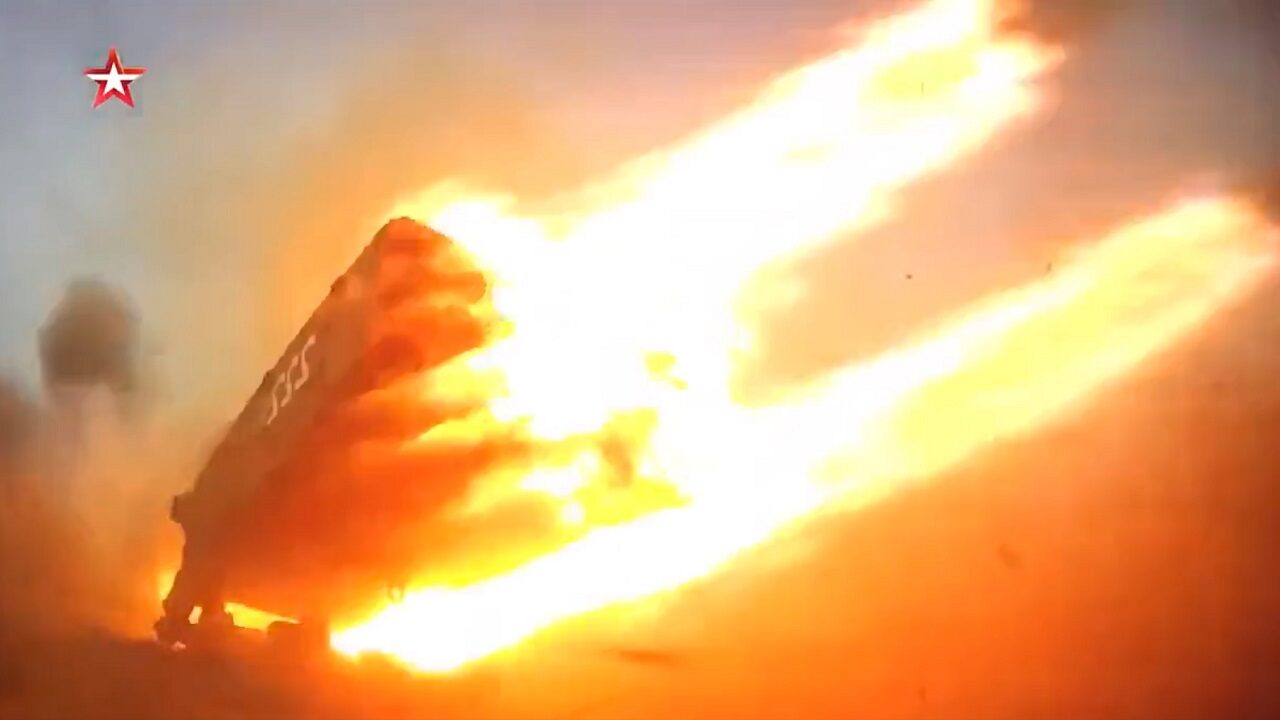The Russian-occupied Zaporizhzhia nuclear power plant halted operations on Sunday as a safety precaution, according to a statement issued by the Ukrainian nuclear energy agency Energoatom.
According to the statement, the facility “completely stopped” after it was disconnected from the number 6 power unit at 30:40am local time. The agency added that preparations were underway for the cooling of the plant, transferring it into a “cold state.”
The term “cold state” refers to the shutdown of the reactor, which would prevent a chain reaction and a nuclear disaster. According to the United States Nuclear Regulatory Commission, a cold shutdown occurs when the reactor coolant system is at atmospheric pressure and a temperature below 200 degrees Fahrenheit and follows a reactor cooldown.
The decision to transition the plant into a cold state comes after months of fighting on and around the facility, with rocket strikes repeatedly destroying power lines to the plant.
In the same statement, Energoatom stressed that the risk of further damage to the plant “remains high.” The agency also said the decision was made to shut down the plant entirely because by losing the number 6 power unit, the plant would be forced to be powered by a diesel generator – a risky strategy that would have only remained safe for as long as diesel fuel was available.
Kyiv Tells Locals to Evacuate
Last week, Kyiv urged all residents in Russian-occupied regions surrounding the Zaporizhzhia facility to evacuate as soon as possible.
On Wednesday, Ukrainian Deputy Prime Minister Iryna Vereshchuk told local residents to find a safe route away from the towns surrounding the facility.
“I appeal to the residents of the districts adjacent to the Zaporizhzhia Nuclear Power Plant…evacuate!” Vereshchuk said in a Telegram post. “Find a way to get to [Ukrainian] controlled territory.”
The call was echoed by the Ukrainian mayor of Enerhodar, who was exiled after the Russians took control of the region, who also made a plea to local people on Telegram.
Will Putin Finally Comply?
Russian ambassador Mikhail Ulyanov signaled the possibility that Russia may finally be willing to take more action to secure the Zaporizhzhia nuclear power plant, though stopped short of confirming that Russia would finally agree to demilitarize the area.
In a tweet following a call between the Russian president and French President Emmanuel Macron, Ulyanov said that the two leaders “expressed readiness for non-politicised interaction with regards to the situation around the #ZNPP with #IAEA participation.”
It follows repeated calls from world leaders for Russia to withdraw all of its troops, military equipment, and ammunition from the plant – calls that have been roundly dismissed by the Kremlin.
The International Atomic Energy Agency reiterated its call for a demilitarized zone around the plant less than a week ago after a team of United Nations experts completed a tour of the plant, with IAEA Director General Rafael Grossi stressing that Russian and Ukrainian military personnel were “playing with fire” by fighting around the plant.

Russian T-90 Tank. Image Credit: Creative Commons.
“We are playing with fire, and something very, very catastrophic could take place,” Grossi said.
Jack Buckby is a British author, counter-extremism researcher, and journalist based in New York. Reporting on the U.K., Europe, and the U.S., he works to analyze and understand left-wing and right-wing radicalization, and reports on Western governments’ approaches to the pressing issues of today. His books and research papers explore these themes and propose pragmatic solutions to our increasingly polarized society.

